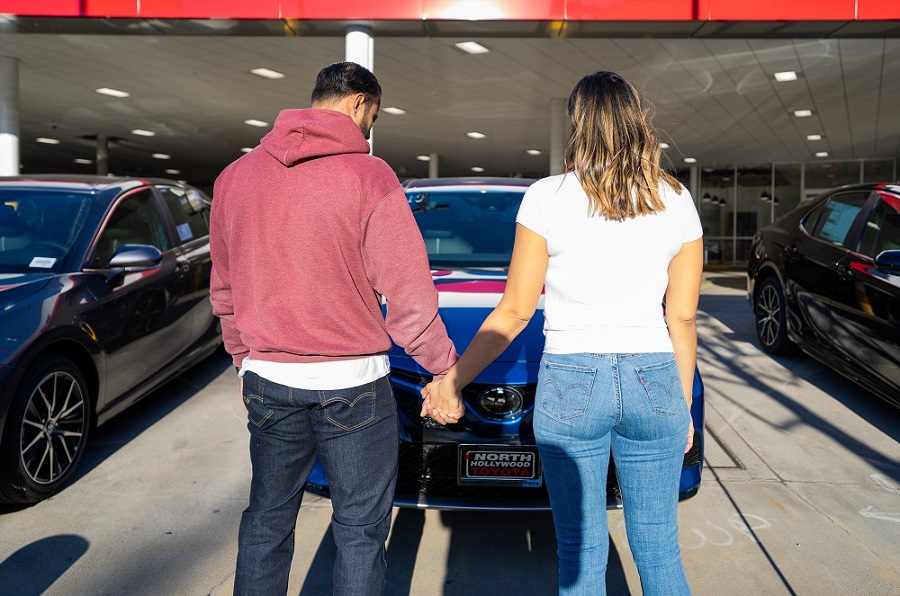5 Things to Check For Before Buying a Used Car
Posted Saturday, Sep 30, 2023

With the rising costs, more and more people are switching to used cars. That isn't alarming, as a used car isn't as poorly managed as it used to be decades ago. Gone are the days when secondhand cars left you scared and unsure about the future. Today, you can buy a car that isn't brand new and still be able to drive comfortably.
Manufacturing techniques, insurance, and repairs have improved much more than in the past. If appropriately maintained, cars last longer, and used cars are as good as new ones. You can easily access the car's history without relying on another person's words.
However, it is important to have a reliable source when buying your first used car. Some things you should look for can be accessed easier with an experienced professional that helps you understand if the used car is worth buying.
Common Mistakes
Before getting into the necessary checks for a used car, a discussion on some common mistakes is vital. Buying a used car might be a bad decision if you rely on the wrong dealer or person.
Some people may rely on a random dealer when buying their used car. This makes them easy bait. One can easily take advantage of a person who doesn't know much about used cars. Consider taking a friend or professional along who can make the desired checks for you.
Another vital consideration is to surveil the car's features and not be fooled by the surface beauty. No matter how well-maintained the outside of the car is, everything depends on how well-maintained it is on the inside.
Remember, you can always get a better deal if you are considering the right factors. Ask for multiple quotes if you are buying a car that isn't manufactured anymore. Do not buy the first car you come across, as lower quotes revealed in the future can lead to regrets.
Essential Checks Before You Close the Deal
Some of the things to consider before buying a used car include:
1. The History
You don't have to rely on another person's word anymore. You can easily access the car's entire history along with the repairs and damages. This can speak volumes about any long-lasting damages that can ruin your future use and prevent you from enjoying your driving.
Analyze the history and ask the car owner for explanations to shed light on the same. You can also hire a professional to help you understand if the car is worthy of purchase.
2. The Inner and Outer Inspection
Before buying a used car, conduct a thorough inspection on the inside and the outside. Run your hand along the exterior and note any damages to the body of the car or paint job. Any rusting can lead to major problems in the future if ignored.
Go over the inside of the car and note any damages to the seats, wheel, or other areas. Take your time to check the air conditioning, heating system, and stereo if you don't like driving in silence.
This inspection also includes lifting the hood and investigating to the best of your abilities. Yet again, a professional can advise you best. However, you can note the smaller things, such as leaks, cracks, or corrosion.
While you are at it, consider looking under the car for any items that appear out of place. Surveil the car for any fixings or repair jobs that are apparent. You should also take some time to check the tires and confirm if they are worn out evenly. A partial wearing points to alignment issues that require expensive repairs to be fixed.
3. Mileage
A car's mileage can tell you a lot about its performance. Cars with good mileage can last you a long time. However, poor mileage can eat away at your fuel and indicate damaged components. If you want to buy a used car, consider one with a reading of fewer than 100,000 miles. This reading is present on the odometer.
4. The Drive
Before finalizing the deal, ensure you have taken the vehicle for a test drive. Try to test everything you want to check during that short drive, including the steering wheel's functions, how quickly it picks up speed, and the brakes. If you are particularly picky, you can also test its parking abilities.
5. A Professional's Advice
No matter how much you inspect a used car, you may still need a professional's advice before buying a car. There are some features that are hard to judge from a first look. Someone who knows more about a car's mechanics and components that can affect performance can give better advice.
Bring along an experienced friend or take the car to the mechanic to understand things that need work. A professional can help you make a pros and cons list to decide whether the car is a worthy investment.
Some of the best cars can develop complicated and unsolvable problems if they aren't taken care of. A car's performance and future life depend on the driver who owned it first. Before buying the car, consider the driver's expertise and evaluate whether it has left any lasting impact on the car itself.
Final Thoughts
Don't just rely on the car's odometer to understand how long it has been used and how much life it has left. Inspect the tires, pedals, gear, and steering wheel for wear and tear. The more a car is driven, the more it is worn out. You might need to match the usage to your requirements.
Buying a used car will ultimately depend on things you can sacrifice and others you cannot compromise on. Go into the deal with an open mind and carefully analyze all the pros and cons before making the final decision.

